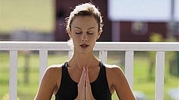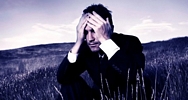|
|
 Acne (1,500) Acne (1,500)
 Addictions (1,500) Addictions (1,500)
 Advice (1,500) Advice (1,500)
 Allergies (1,092) Allergies (1,092)
 Alternative Medicine (1,500) Alternative Medicine (1,500)
 Anti Aging (1,500) Anti Aging (1,500)
 Breakup (1,500) Breakup (1,500)
 Cancer (1,499) Cancer (1,499)
 Dental Care (1,500) Dental Care (1,500)
 Disabilities (1,500) Disabilities (1,500)
 Divorce (1,500) Divorce (1,500)
 Elderly Care (1,498) Elderly Care (1,498)
 Goal Setting (1,500) Goal Setting (1,500)
 Hair Loss (1,500) Hair Loss (1,500)
 Health and Safety (1,497) Health and Safety (1,497)
 Hearing (1,500) Hearing (1,500)
 Law of Attraction (1,499) Law of Attraction (1,499)
 Marriage (1,500) Marriage (1,500)
 Medicine (1,497) Medicine (1,497)
 Meditation (1,499) Meditation (1,499)
 Men's Health (1,500) Men's Health (1,500)
 Mental Health (1,500) Mental Health (1,500)
 Motivational (1,500) Motivational (1,500)
 Nutrition (1,495) Nutrition (1,495)
 Personal Injury (1,499) Personal Injury (1,499)
 Plastic Surgeries (1,500) Plastic Surgeries (1,500)
 Pregnancy (1,496) Pregnancy (1,496)
 Psychology (1,500) Psychology (1,500)
 Public Speaking (1,500) Public Speaking (1,500)
 Quit Smoking (1,500) Quit Smoking (1,500)
 Religion (1,499) Religion (1,499)
 Self Help (1,500) Self Help (1,500)
 Skin Care (1,500) Skin Care (1,500)
 Sleep (1,500) Sleep (1,500)
 Stress Management (1,500) Stress Management (1,500)
 Teenagers (1,492) Teenagers (1,492)
 Time Management (1,500) Time Management (1,500)
 Weddings (1,500) Weddings (1,500)
 Wellness (1,500) Wellness (1,500)
 Women's Health (1,500) Women's Health (1,500)
 Women's Issues (1,500) Women's Issues (1,500)
|
Living life with Humility: Excellent book; no Casual Read In one section, the author writes about baptism: "In this foundational renunciation signified by baptism, we surrender our false self, generated by our egocentric desires. Since sin is living heedlessly, harming others or ourselves, we renounce these patterns of ignorance and sin by choosing a better way for ourselves and others." In her book Sister Mary Margaret Funk suggests the way of humility (Humility Matters: for Practicing the Spiritual Life, foreword by His Holiness the Dalai Lama). This better way starts with baptism.
First point: The book is for anyone interested in living life with greater practice and aptitude for humility. If you are interested in the subject "humility," or as a Christian in living a deeper spiritual life, this closely written book is for you.
The book is published by The Continuum International Publishing Group (2005 copyright by Sisters of St. Benedict of Beech Grove, Indiana, Inc.). The copyright holder name is an indication of how current this title is and how savvy a book this is, the fact that a corporation of Sisters owns the copyright. How contemporary, and to have an introduction by the Dalai Lama!).
"This is the third volume of a trilogy that began with Thoughts Matter: The Practice of the Spiritual Life and continued with Tools Matter for Practicing the Spiritual Life." That from the flyleaf of the dustcover. The only book of the trilogy I've read is the one on humility, which is based on Rule of St. Benedict teachings. Sister Mary is Benedictine, as you recognize and for those interested in Benedict and living a better kind of life, the 186-page book (with notes) is more than acceptable, it is an asset. Interested in Christian living, read this book. Keep in mind the book is not a casual read.
Second point: Christian living is based on a belief in Jesus. It is also an expression of living life in community, and expressing that way of life through various disciplines and practices, mostly guided by the community. In this manner, the book is written from a Christian perspective, albeit Roman Catholic. Why have a Buddhist write the introduction? He likes what Sister Mary says. The forward answers the question, and here is insight the spiritual leader gives when he writes, "Humility is an essential ingredient in our pursuit of transformation, although this may seem at odds with our need for confidence. But just as there is clearly a distinction between valid confidence, in the sense of self-esteem, and conceit, so it is important to distinguish between genuine humility, which is a kind of modesty, and lack of confidence" (from the forward by the Dalai Lama.)
Third point: Surprisingly, Humility Matters is genuine in its value to interreligious dialogue for it speaks to a cross section of believers. Sister Mary served as executive director of Monastic Interreligious Dialogue, a group fostering dialogue among monastics of the world's religions.
A statement that is basic to Christians and believers in God is one step proposed by the writer. Relying on various sources of religious living, it is clearly inspirational and basic to consider this suggestion from the writings of John Cassian: "...to renounce our self-made thoughts of God." I find this Biblical, and like the teaching in this book based on wisdom sources. The book is a source of wisdom for the reader, with many directions to consider, and even meditate upon.
One imaginative way Sister Mary brings these directions to life is through a play-like series of interviews with wisdom teachers from the long ago past. She interviews John Cassian, Teresa of Jesus The Illuminative Way, and holds a like imaginative dialogue with Therese of Lisieux. In a meditation Sister Mary writes, "In this book we have taken a long look at how we can respond to grace in order to empty ourselves of all...This journey is often called `The Way.'"
A means of God consciousness, the book brings the interreligious dialogue along, as well as aids the Christian in his or her journey. Sister Mary writes in her introduction, "The external journey above the river is to do good and avoid evil. The spiritual journey starts with this plunge into the unseen, the interior life." The Dalai Lama says in his forward, "Humility is an essential ingredient in our pursuit of transformation although this may seem to be at odds with our need for confidence." A goal for the Buddhist is mindfulness. For the Christian, it is humility. The book points the reader in the direction of a deeper life, in a life more mindful.
Fourth point: In our consumer society we need things, so advertising tells us-- persuasively. Listing renunciation of "things" leads to better understanding and control of ones life, and is a subject of the book. In writing of these afflictions, she addresses food and sex, among other conditions mankind lives with and with which one needs to make various kinds of peace. The book is about having peace in ones life.
Conclusion: I like the section, "Thoughts on Vainglory." From a lectio divina section of the book she quotes Proverbs in the Bible: "Do not swerve to the right or to the left; turn your foot away from evil." In many ways this is a book about living a better life, a life that turns away from evil and towards good. It is about living a life that finds greater meaning, and that is interested in living a more holy life in God.
The book is not out of the reach of the intelligent reader; the suggestions and outlines are within the grasp of the ordinary person who desires a stronger inner life, and a better life in common with others. This book points in the direction of Luke, quoting, "...what must I do to inherit eternal life?" The response by the writer is to turn towards God; "No one is good but God alone." Consider the book a gentle exhortation.
--Peter Menkin, 7th Sunday of Easter 2007
|
|
|



